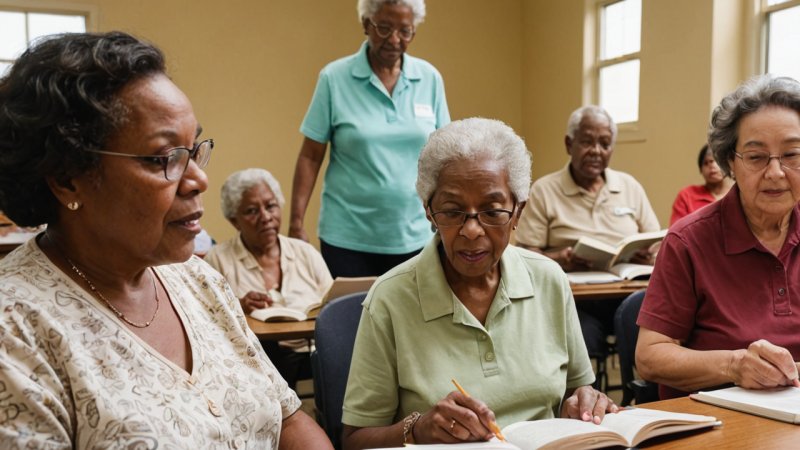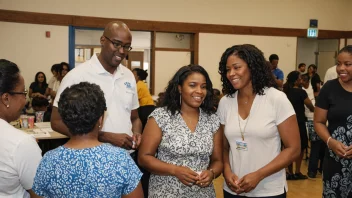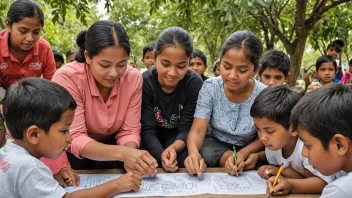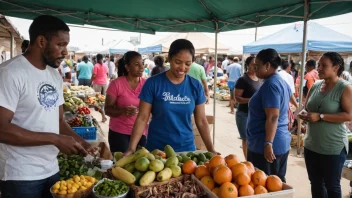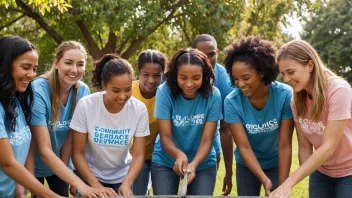What are the benefits of literacy programs for older adults?
Literacy programs for older adults can significantly improve their quality of life. These programs enhance cognitive abilities, promote social interaction, and increase independence. Additionally, they can help older adults navigate daily tasks such as reading prescriptions or understanding legal documents.
What should be the focus of a literacy program for older adults?
A successful literacy program for older adults should focus on practical skills that enhance daily living. This includes reading comprehension, writing skills, and critical thinking. Programs should also incorporate topics relevant to their interests, such as health information, financial literacy, and digital skills.
How can I assess the literacy needs of older adults in my community?
Assessing the literacy needs can be done through surveys, interviews, or focus groups. Engaging local senior centers or healthcare providers can also provide insights into the specific challenges faced by older adults in your community. It is essential to understand their interests and existing skills to tailor the program effectively.
What resources are available to help develop literacy programs?
There are numerous resources available, including:
- Local Libraries: Many libraries offer free resources and support for literacy initiatives.
- Nonprofit Organizations: Organizations like the AARP and ProLiteracy often provide training materials and guidance.
- Online Platforms: Websites such as Coursera or Khan Academy can offer free courses that can be adapted for older learners.
How can volunteers get involved in literacy programs for older adults?
Volunteers can play a crucial role in literacy programs. They can serve as tutors, help organize events, or assist in developing curriculum materials. Local community centers often seek volunteers, and online platforms can connect individuals with those in need of literacy support.
What teaching methods are effective for older adult learners?
Effective teaching methods for older adults include:
- Interactive Learning: Engaging activities that encourage participation can help reinforce learning.
- Peer Learning: Group sessions where participants learn from each other can foster a supportive environment.
- Real-World Applications: Teaching materials should relate to real-life situations that older adults encounter.
How can I measure the success of a literacy program?
Success can be measured through various means, such as:
- Participant Feedback: Regular surveys and feedback sessions can provide insights into the program's effectiveness.
- Skill Assessments: Pre- and post-program assessments can show improvements in literacy skills.
- Community Engagement: Increased participation and interest in other community activities can indicate success.
What are some challenges faced in implementing literacy programs for older adults?
Challenges may include:
- Motivation: Finding ways to motivate older adults to participate can be difficult.
- Accessibility: Ensuring that programs are accessible to those with mobility or transportation issues is crucial.
- Funding: Securing adequate funding and resources to sustain the program can be challenging.
How can I advocate for literacy programs for older adults in my community?
Advocating for literacy programs can involve:
- Raising Awareness: Share information about the importance of literacy for older adults through social media and community events.
- Engaging Local Leaders: Connect with local government and organizations to discuss the need for support and resources.
- Collaborating with Existing Programs: Partner with established organizations to amplify efforts and reach more individuals.
In conclusion, developing literacy programs for older adults is a vital step towards enhancing their quality of life and empowering them to engage fully in their communities. By understanding their needs, utilizing available resources, and fostering a supportive learning environment, we can make a significant impact. Whether you're a volunteer, educator, or advocate, your efforts can help bridge the literacy gap and promote lifelong learning for older adults.
